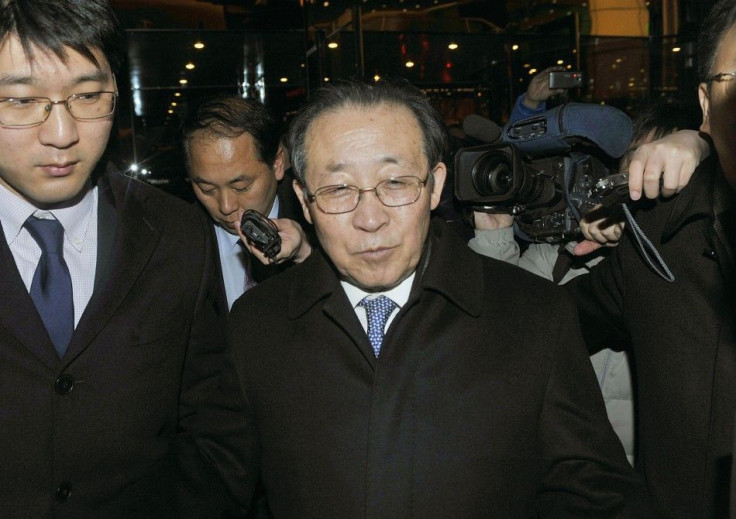North Korea, U.S. Restart Nuclear Talks

U.S. and North Korean government officials are meeting in Beijing, China to discuss Pyongyang’s nuclear ambitions, two months after the death of former North Korean leader Kim Jong-il.
Glyn Davies, U.S. Special Representative for North Korea Affairs, told reporters that talks with his counterparts were serious and substantive, and said the parties covered quite a number of issues.
The Americans apparently view North Korea’s willingness to resume nuclear negotiations as a hopeful sign, particularly in light of the ascension of a new leader in Pyongyang, Kim Jong-un.
Ahead of his meeting with North Korea officials, Davies told reporters: I find it a positive sign that relatively soon after the beginning of the transition in North Korea, the [country] has chosen to get back to the table with us. I think that is a good thing. My hope is that we can find a way to move forward with the North, because it's in everyone's interest to try to get on the next phase, which will be six-party talks.”
Mark Toner, the U.S. State Department's spokesman, said that the U.S. government is cautiously optimistic about the ongoing talks with North Korea.
The U.S. would like to ultimately recharge talks on disarmament, a process that would involve as total of six nations -- North Korea, South Korea, U.S., China, Russia and Japan.
Prior disarmament talks collapsed in 2009, after which North Korea conducted its second nuclear test.
Kim Keun-sik, a North Korea expert at Kyungnam University in South Korea, commented to The Associated Press: The fact that North Korea has come to the negotiating table means the country is enjoying a level of internal stability. But we can't immediately link North Korea's stability to how fruitful the talks will be.”
U.S. officials are eager to find out if Jong-un would offer to relinquish his nuclear program, perhaps in exchange for food and economic aid to his starving country or some other concessions.
Washington officials have also emphasized that any aid to North Korea would be dependent on Pyongyang improving its ties with South Korea.
North Korea has previously agreed to cancel its nuclear program in return for aid and concessions, but such pacts always broke down.
Next month, in March 2012, a nuclear security summit is scheduled to be held in Seoul. North Korea media has apparently criticized that upcoming parley.
It is illogical to discuss the 'nuclear security' issue in South Korea, the U.S. nuclear advance base and a hotbed of nuclear war, North Korea's official Korean Central News Agency stated.
North Korea added that such a summit was inappropriate given that the U.S. and South Korea are planning to conduct military drills over the next few months -- acts that Pyongyang described as rehearsals for a nuclear war against the North.
© Copyright IBTimes 2025. All rights reserved.





















